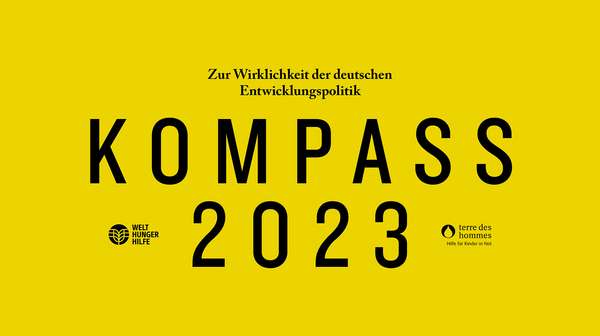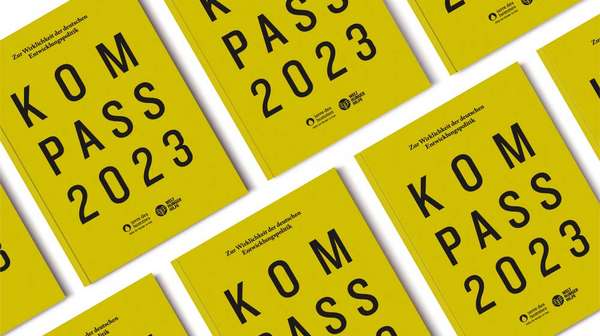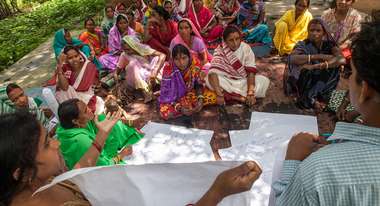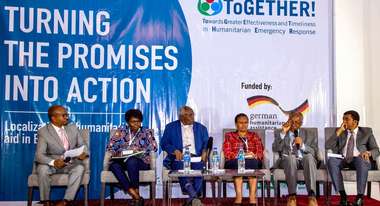For the 30th time, Welthungerhilfe and terre des hommes Germany have published a report "On the reality of German development policy". The full "Kompass 2023" report is only available in German.
Kompass 2023: Development Policy Recommendations For The Federal Government
Welthungerhilfe and terre des hommes Germany draw up development policy recommendations for the German government.
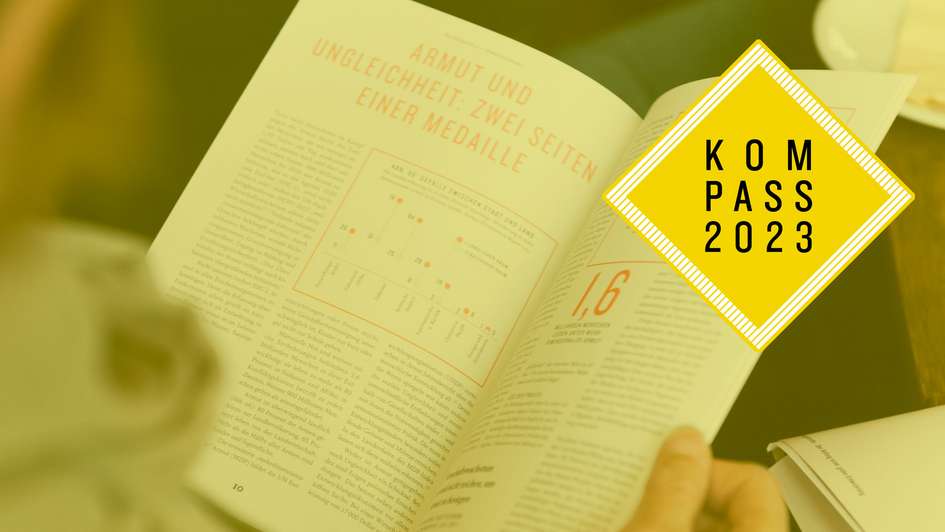
1. Creating a reliable concept for development financing
In the countries of the Global South, the multiple global crises have additionally widened the gap between available resources and needs. Especially in view of this, the Federal Government must not relent in its efforts to implement Agenda 2030. Official development assistance (ODA) must not drop below the level of 0.7 percent of gross national income (GNI). Here, the Federal Government has to engage particularly in countries which are especially hard hit by hunger and poverty. Providing ODA means totaling 0.2 percent of the GNI to the least developed countries (LDCs) is a precondition for enabling these countries to break through the vicious circle of poverty, vulnerability and instability. The final declaration of this year’s G7 Summit contains a pledge to provide 19 billion euros this year to cope with humanitarian crises, including the acute food crisis; as a member of the G7 community of nations, Germany ought to urge that concrete financial pledges also be made for long-term food security.
2. Strengthening human rights principles in development policy
Implementing the human rights approach has to receive a higher status in development cooperation. With its performance profile referring to the quality criterion of human rights, the BMZ ought to ensure that the number of projects addressing human rights increases, and that in the future, human rights standards and principles is comprehensively considered as a cross-cutting issue in the planning and implementation of development programs. The rights of children and youths – who account for the majority of the population in most of the partner countries of German development cooperation – ought to be established in the performance profile. Also, the BMZ should introduce a child protection policy for itself and all implementing organizations.
3. Promoting democracy and the rule of law, strengthening civil society
Promoting democracy and the rule of law via development policy requires cross-departmental coherence. This applies in particular to countries in which conflicts of aims may arise because they are, for example, both development and economic partners. At international level, the Federal Government should campaign for good governance and ought to also strengthen it with development cooperation means in difficult contexts. Here, special attention should be given to strengthening civil society, in particular to children and youths and their organizations.
4. Supporting climate resilience among the poor in particular
Climate change is threatening the livelihoods of people worldwide. It is above all those already affected by hunger and poverty who are in danger. The Federal Government ought to raise its contribution to international climate financing to at least eight billion euros a year by 2025. In allocating finance, the focus should be on food security and improved climate resilience among the poor population in the rural areas of the Global South. In addition, it has to be ensured that the interests of the disadvantaged and vulnerable groups of the population are adequately considered in the planning and implementation of climate protection and adaptation measures (e.g. by civil society organizations).
5. Strengthening food security in global supply chains
Food security is a basic prerequisite for the establishment of sustainable supply chains in the agricultural sector in particular. The Federal Government ought to continue to campaign for compliance with corporate human rights due diligence in global value chains at EU and UN level and urge adopting the human right to adequate food in the respective directives. In parallel, the BMZ should support enterprises, and here above all smaller farms, in the Global South in being able to fulfill human rights due diligence requirements. This requires comprehensive advisory and support services which also consider food security.
6. Supporting rural areas in africa, involving civil society at eye level
Agriculture and the rural areas are of crucial importance to Africa’s economic development and food security in the continent. In order to perform their role as a “driver of development”, they require special support. The BMZ’s Africa Strategy could have been developed with more African participation. Now, during implementation, the BMZ ought to involve civil society at eye level as an important development actor. This applies in particular to the civil society organizations in the partner countries themselves.
7. Swiftly developing social security systems
Social security systems are indispensable in enabling people to escape the poverty trap. They therefore have to both flexibly respond to acute emergencies and systematically focus on chronic poverty while being further developed in the long term. Here, the Federal Government particularly ought to take care that people in the informal sector and in agriculture – and especially also women and children – are addressed by the systems. Germany ought to meet its contribution to the G7 goal of integrating one billion more people in social security systems by 2025 by creating an adequate overall concept.
8. Consistently implementing feminist development policy in a context-sensitive manner
With its concept for a feminist development policy, the BMZ has set a clear signal. However, in order to be able to do justice to the concept’s transformative claim, reaching a certain quota as a gender marker – the BMZ seeks to achieve 93 percent – is not enough. The implementation of the concept bears a conflict potential, above all in those countries in which the rights of women, girls and LHBTIQ+ individuals are not recognized or are actively oppressed for political reasons. It is all the more important to develop the concept in the respective environment in concrete terms taking the context into account, bearing possible risks in mind, and involving local political and civil society partners.





